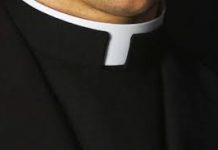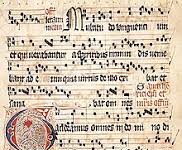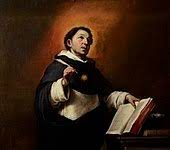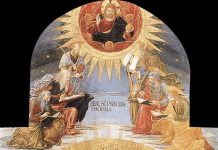On this July 17th, 1870, the First Vatican Council solemnly declared the doctrine of infallibility – infallibly. The prelude to the definition was surrounded with controversy, with figures such as Cardinal Newman warning that, although true, it was inopportune. But God has His ways, and Pius IX was determined. So, an overwhelming majority of the bishops in Council voted in favour of the following formula, found in the final paragraph of the Constitution Pastor Aeternus:
Therefore, faithfully adhering to the tradition received from the beginning of the christian faith, to the glory of God our savior, for the exaltation of the Catholic religion and for the salvation of the christian people, with the approval of the Sacred Council, we teach and define as a divinely revealed dogma that when the Roman Pontiff speaks EX CATHEDRA, that is, when, in the exercise of his office as shepherd and teacher of all Christians, in virtue of his supreme apostolic authority, he defines a doctrine concerning faith or morals to be held by the whole Church, he possesses, by the divine assistance promised to him in blessed Peter, that infallibility which the divine Redeemer willed his Church to enjoy in defining doctrine concerning faith or morals. Therefore, such definitions of the Roman Pontiff are of themselves, and not by the consent of the Church, irreformable.
Note that infallibility is a charism belonging to the Church, as the Mystical Body of Christ, which is normally exercised through the papacy, belonging to the office, not the man, even if exercised personally. We may take heart that most of what the Pope teaches, or says, is not infallible, even it may be more (or less) authoritative (a different thing). Popes can be wrong, or deluded, sinful or erring – but their official teaching office is, in the end, protected by divine assistance.
And the Roman Pontiff does not ‘make up’ new doctrine. Rather, he clarifies what is already implicit within revelation, the salvific truth that Christ handed on to His Apostles. As someone once put it, he does not invent, but locates truth. The Pope is not Tradition, but is himself bound by Tradition.
At the moment of the definition, one of the most violent thunderstorms in living memory burst forth, with a bolt of lightning hitting Saint Peter’s. Sometimes, God does love theatre. The next day, the Franco-Prussian war began, and the Council was prorogued, and not formally closed until the opening sessions of the Second Vatican Council.
We may take heart that regardless of how wayward a Pope, pontificate or Magisterium may be, as the history of the Church attests, the truth always wins out in the end. And that, dear reader, is infallible.











